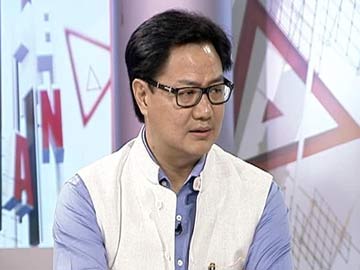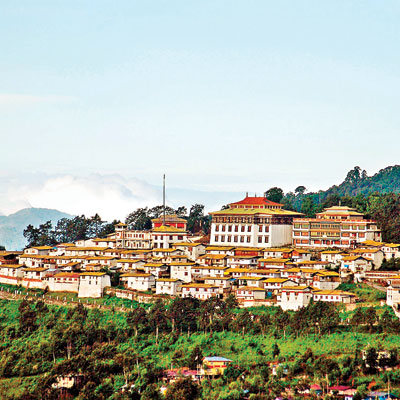By Tejinder Narang
Importing rice for Tripura and Mizoram doesn’t seem easy, but it is also a $450 million opportunity for trade.
For the first time, FCI is compelled to import rice for the north-eastern states of Tripura and Mizoram, owing to temporary interruption in railway lines rather than lack of availability of rice. Monthly consumption of these two states is 40,000-50,000 tonnes, or about half a million tonne per annum.
Indian Railways is commencing gauge conversion of a 220-km track from Assam to Agartala (Tripura) from October 1, 2014, while the highways in the region are in a shoddy state. Imports for the next two years—about 1 million tonnes—through alternative routes are a necessity rather than an option. Also, due to absence of trucking-worthy cross-border routes, imports may have to be diverted through the Chittagong port in Bangladesh.
The current cost of procuring Indian rice is R2,755 per quintal and despatch expenses are R3,200 per quintal to Tripura from north or south of India. It totals R59,550 per tonne, or about $975, as against the $375-385 per tonne landed value of 25% broken Myanmar rice if supplied through Yangon port to Chittagong. After accounting for unloading at Chittagong, transit storage, shortage, demurrage, road transport of about 200 km to Agartala, financing charges, etc, it should not cost more than $450-460 per tonne delivered at the FCI depot in Agartala. A 0.5 million tonne import will be approximated at about $225 million (R1,370 crore) per year versus the R2,977 crore incurred under local arrangements. The apparent cost saving is 55%. But it is going to be logistical and procedural nightmare to handle this import.
FCI is attempting to engage three PSUs (PEC, MMTC and STC) for this import while they are not well-versed with the scope of the work involved. Normally, these PSUs finalise bids, contracting and shipments to Indian shores, hand over grains to FCI and transfer payments to foreign suppliers. But, in this case, Indian PSUs may not be able to deal effectively with customs/phyto-authorities of Chittagong, handling agents and transporters of Bangladesh. Port authorities in Chittagong can delay berthing/discharging vessels for India-bound cargo due to their own local priorities. Trucks can be in short supply as a 25,000-tonne parcel requires 2,500 trucks (10 tonne per truck). Agreements by rice handling agents or transporters may be breached. Pilferages may be attempted both during storage and transit. Even Bangladesh’s own wheat imports have 2-3% short-landing as a routine occurrence, for which they deduct payments of shippers.
There is no government company in Myanmar that can transact 0.5-1 million tonnes of rice; private players of Myanmar lack export financing and are happy doing container business. Myanmar’s annual rice export is around 8,50,000 tonnes. China is currently a major importer of its rice. If India chips in with its annual demand of 5,00,000 tonnes, rice prices can witness steep rise. FCI may, therefore, include other origins like Vietnam, Thailand and Cambodia for evaluation of bidding and provide an option to supply these origins if commercial feasibility from Myanmar is eroded.
Global rice traders who can participate in this import are based in Singapore, Dubai or Bangkok. But will they be ready to undertake comprehensive operation for shipping rice from Myanmar or elsewhere, clearance at Chittagong, and then arranging despatches to Tripura at “fixed cost” to FCI/PSUs? That alternative must be explored.
There are three options for the government. First, import through PSUs if they are prepared to perform totality of operation themselves by disbursing actual expenses incurred by them. Second, let PSUs configure the bidding process where the foreign suppliers takes the full obligation at a “fixed price” for origin at Myanmar or elsewhere, for delivery at Agartala and builds in the risk premium for Bangladesh while the PSUs disburse the amount to them in two stages. Third, FCI issues a global tender in which PSUs and other foreign sellers bid and compete for delivery at Tripura from any origin and any route at a fixed price. The assurance of Bangladesh giving transit facilities to the Indian government must form an integral part of the tender document. The second alternative may be more practical.
The combined business of about two years is about $450 million and its extension to third year cannot be ruled out. The quantum and pace of import tendering depends upon urgency at Tripura and commercial considerations. Will overseas rice traders see this as an opportunity?
The author is a grains trade expert.
Importing rice for Tripura and Mizoram doesn’t seem easy, but it is also a $450 million opportunity for trade.
For the first time, FCI is compelled to import rice for the north-eastern states of Tripura and Mizoram, owing to temporary interruption in railway lines rather than lack of availability of rice. Monthly consumption of these two states is 40,000-50,000 tonnes, or about half a million tonne per annum.
Indian Railways is commencing gauge conversion of a 220-km track from Assam to Agartala (Tripura) from October 1, 2014, while the highways in the region are in a shoddy state. Imports for the next two years—about 1 million tonnes—through alternative routes are a necessity rather than an option. Also, due to absence of trucking-worthy cross-border routes, imports may have to be diverted through the Chittagong port in Bangladesh.
The current cost of procuring Indian rice is R2,755 per quintal and despatch expenses are R3,200 per quintal to Tripura from north or south of India. It totals R59,550 per tonne, or about $975, as against the $375-385 per tonne landed value of 25% broken Myanmar rice if supplied through Yangon port to Chittagong. After accounting for unloading at Chittagong, transit storage, shortage, demurrage, road transport of about 200 km to Agartala, financing charges, etc, it should not cost more than $450-460 per tonne delivered at the FCI depot in Agartala. A 0.5 million tonne import will be approximated at about $225 million (R1,370 crore) per year versus the R2,977 crore incurred under local arrangements. The apparent cost saving is 55%. But it is going to be logistical and procedural nightmare to handle this import.
FCI is attempting to engage three PSUs (PEC, MMTC and STC) for this import while they are not well-versed with the scope of the work involved. Normally, these PSUs finalise bids, contracting and shipments to Indian shores, hand over grains to FCI and transfer payments to foreign suppliers. But, in this case, Indian PSUs may not be able to deal effectively with customs/phyto-authorities of Chittagong, handling agents and transporters of Bangladesh. Port authorities in Chittagong can delay berthing/discharging vessels for India-bound cargo due to their own local priorities. Trucks can be in short supply as a 25,000-tonne parcel requires 2,500 trucks (10 tonne per truck). Agreements by rice handling agents or transporters may be breached. Pilferages may be attempted both during storage and transit. Even Bangladesh’s own wheat imports have 2-3% short-landing as a routine occurrence, for which they deduct payments of shippers.
There is no government company in Myanmar that can transact 0.5-1 million tonnes of rice; private players of Myanmar lack export financing and are happy doing container business. Myanmar’s annual rice export is around 8,50,000 tonnes. China is currently a major importer of its rice. If India chips in with its annual demand of 5,00,000 tonnes, rice prices can witness steep rise. FCI may, therefore, include other origins like Vietnam, Thailand and Cambodia for evaluation of bidding and provide an option to supply these origins if commercial feasibility from Myanmar is eroded.
Global rice traders who can participate in this import are based in Singapore, Dubai or Bangkok. But will they be ready to undertake comprehensive operation for shipping rice from Myanmar or elsewhere, clearance at Chittagong, and then arranging despatches to Tripura at “fixed cost” to FCI/PSUs? That alternative must be explored.
There are three options for the government. First, import through PSUs if they are prepared to perform totality of operation themselves by disbursing actual expenses incurred by them. Second, let PSUs configure the bidding process where the foreign suppliers takes the full obligation at a “fixed price” for origin at Myanmar or elsewhere, for delivery at Agartala and builds in the risk premium for Bangladesh while the PSUs disburse the amount to them in two stages. Third, FCI issues a global tender in which PSUs and other foreign sellers bid and compete for delivery at Tripura from any origin and any route at a fixed price. The assurance of Bangladesh giving transit facilities to the Indian government must form an integral part of the tender document. The second alternative may be more practical.
The combined business of about two years is about $450 million and its extension to third year cannot be ruled out. The quantum and pace of import tendering depends upon urgency at Tripura and commercial considerations. Will overseas rice traders see this as an opportunity?
The author is a grains trade expert.














